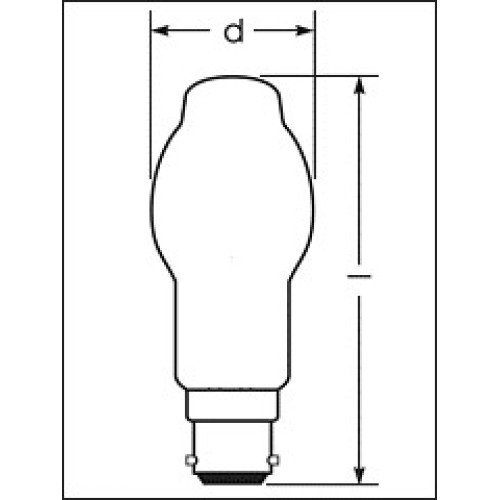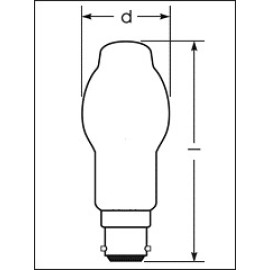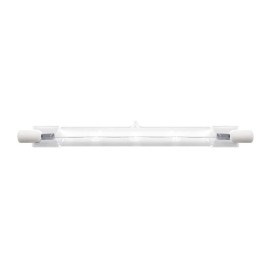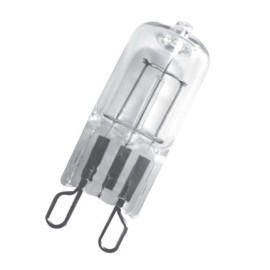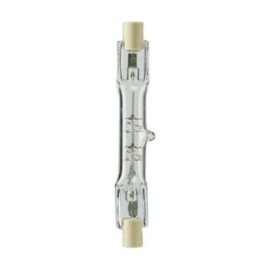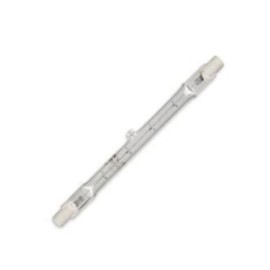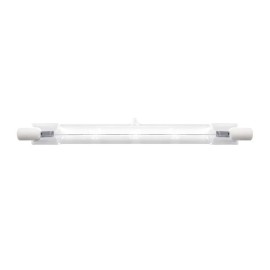
LED Replaces Halogen, and how the EU Ban on Halogen Lamps Affects You
On the 1st of September 2018 the EU ban on halogen bulbs has come into full effect; after more than half a century of brightening our homes and streets with halogen lightbulbs, these are finally banned across Europe. The remaining stocks can still be sold, and the capsule lamps, linear lamps, and low voltage incandescent lamps in the oven lights are exempt from this ban, but a continent-wide ban came into effect for halogen. The halogen lamps are to be replaced with LED lamps, mainly to slash emissions and cut down the energy bill, and to prevent the carbon emissions. It is estimated that a consumer would save up to £112 per year when you switch from halogen to LEDs, though there's an initial investment - with many long-term benefits and savings. We all understand the main reason for switching to LED lamps, but there are still some questions that need an answer, such as, Why are Halogen Lamps Banned? According to the European Union directive EC 244/2009, there has been a progressive banning of the less efficient light sources (such as the high wattage incandescent lamps and energy-consuming halogen lamps) with the aim of improving the energy efficiency and cutting the carbon emissions across all countries in the EU. First, the traditional incandescent light bulbs were banned in 2009, and now it is the halogen lamps turn (see our interview with BBC on this topic). The main reason for banning the halogen lamps is because they use much more energy than the LED lamps or the compact fluorescent alternatives, plus, they have a shorter lifespan (2000h, which is approx. 2 years of use when used 3h per day). The ban affects the classic style halogen lamps made of glass, those operated without a transformer, which emit light in all directions, using lamp caps such as E27 (Edison Screws), B22 (bayonet lamps BC), E14 (small Edison screw SES), and B15 (SBC) types. Do I need to Change my Halogen Lamps to LEDs? The EU directive doesn't force any individual user to immediately switch from incandescent lamps or halogen lamps to LED lamps; however, it is recommended to reduce the energy consumption not only for saving money on electricity bills, but also to reduce the carbon emissions. How does the halogen lamps ban affect the regular homeowner? Halogen lamps will still be available for purchase, because retailer such as Sparks Electrical are still permitted to sell through any existing stock; however, these are phased out, and it will be increasingly difficult to source. Of course, some specialist light bulbs where a LED alternative is not available yet (such as G9, G4, and R7s - used in ovens or cooker hoods) will still be available, but as their energy-saving replacements become available, these also will be phased out. What about Brexit and the Halogen Lamps Ban in UK? That is a good question: does Brexit affect the halogen bulb ban? The answer is, Not really, since the UK still follows the EU legislation, and light bulbs manufacturers are decided not to make both high wattage light bulbs and LED lamps to meet the need of both markets. Is switching to LEDs a Cost-effective Solution? Many people are not even considering to switch from their existing incandescent or halogen lamps to LED lamps simply because their light bulbs work just fine - so why fix something that's not broken. Also, as we all know, LED lamps are a bit more expensive than the halogen lamps, at least initially; the prices have decreased year by year as the technology advances and the manufacturing costs are lower, but still, a LED light bulb is a bit more expensive than a halogen lamp. However, a halogen lamp may need to be changed after 2-3 years of use, while a LED lamp may last between 10-20 years (based on 3h or use per day). You as a consumer do not have an obligation to replace your existing halogen bulbs now, before they expire; however, if you want to save money on your electricity bills and extend the lamp life, and if you want to reduce the carbon footprint, then the replacing of halogen lamps is a must. It's worth considering switching to more energy-saving LED bulbs as the nights are getting longer and lights will be on more. Are All LED Lamps the Same? Can they All be Trusted? Switch from Halogen to LED lamps (picture via Integral LED) The LED lighting market is flooded with all kinds of LED lamps, and many times we hear stories of people buying LED lamps which fail either to dim or to work properly. There are fire risks associated with counterfeit or faulty LED lights which are often sold on well-known e-commerce website (as indicated by ECA here), so consumers are advised to only buy electrical goods from reputable retailers. We at Sparks carefully source the LED lamps we sell, and if there are any faulty ones, we replace it like-for-like. However, when it comes to LED lamps we all need to pay a little more attention to such details as the lamp cap used (GU10, E27/ES, SES, BC, etc), the wattage you desire (for example, a 6W LED lamp can be equivalent to a 60W halogen lamp), the colour temperature desired (warm white, cool white, daylight, etc), and whether the LED lamp needs to be dimmed. When it comes to dimmable LED lamps, there may be only some LED dimmers that are recommended with the dimmable LED lamps, so you may have to also change your wall dimmer. It is best to check with a registered electrician on this matter of dimming, since they may need to change your dimmer switch also. If you have any other questions regarding the EU ban on Halogen Lamps, please leave us a comment or read the further articles linked to below. We at Sparks still stock halogen lamps (as stock lasts) and we warmly recommend the alternative LED lamps which are more energy-efficient and longer lasting. Let's save the planet together. Let's reduce the carbon footprint, and let's reduce the energy consumption in our homes, workplace, and public places! More info on EU ban on Halogen Lamps Articles on this topic which inspired us and highlighted some of the main points on the EU ban on Halogen Lamps and their replacement with LEDs: EU product ban on halogen bulbs came into force on 1 September - Households to save Billions Following Halogen Lamp Ban (via Professional Electrician). All you need to know about the Halogen Lamps Ban in the EU - via the Evening Standard. Europe is banning the Halogen Lightbulbs - via the Guardian. EU bans production of 60W incandescent lamps - in 2011, on Sparks blog. EU's ban on Halogen Light Bulbs takes Effect on 1 September 2018 - via EuroNews. Everything you need to know on EU Halogen Light Bulb Ban, via Which. Via Fortune Environment, EU Ban on Halogen Light Bulbs Takes Effect this September. Here's what you need to know about Halogen Light Bulbs being banned in the EU - via inews. The EU's bright spars han the halogen bulbs, via Express.




